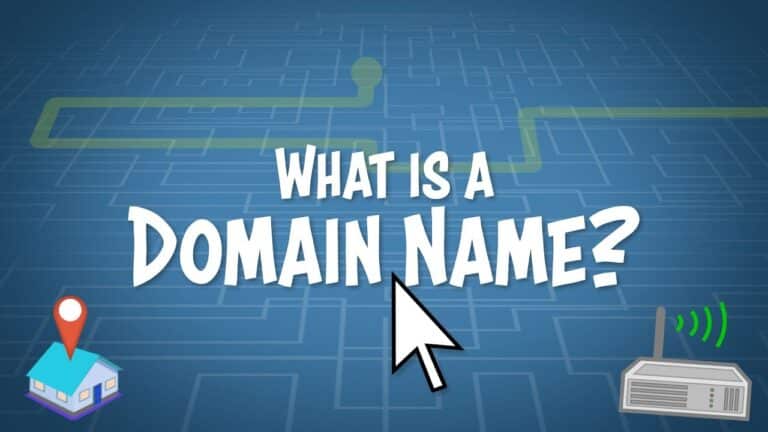What is a Domain Name?
A domain name is your website name. a website name is that the address where Internet visitors can access your website. a website name is employed for locating and identifying computers on the Internet. Computers make use of IP addresses, which are a series of numbers. though, it’s complicated for humans to recollect strings of numbers. due to this, domain names were developed and wont to identify operations on the web instead of using IP addresses.
A domain name is that the identity of 1 or more IP addresses; such as the domain name google.com. Domain names are made-up as it is easy to keep in mind a name quite than a long series of numbers. It would be easy to go through a domain name in the search bar than a long string of numbers.
So, it’s the web address of your website that people got to type within the browser URL bar to go to your website. In simple words, assume your website is a residence, then the domain name is its address.
A domain name cannot contain more than sixty-three characters without .com, .net, .org, .edu, etc. The minimum expanse of a domain is one character without the expansions It is entered within the URL after the protocol and subdomain.
E.g. https://www.google.com
https: ( Protocol)
www. (Subdomain)
google.com (domain and domain suffix)
How Domain Name Works:
While the domain name is entered in your web browser, a request is sent to the overall network of servers that form the Domain Name System (DNS), which is similar to a phonebook of the internet.
The server subsequently searches the name servers correlated to the domain and forwards the request to the name servers. The name servers are immense computers, which are overseen by hosting companies. The hosting company forwards the request to the webserver where your site is put away. The web server fetches the requested web page or info and forwards it to the browser.
The Domain Names method is managed by an Internet company for Assigned Names and Numbers (ICANN). It is a voluntary organization that creates and implements policies for domain names.
ICANN approbate the companies called Domain Name Registrars for marketing domain names. It also allows them to craft changes to domain names registry on behalf of, and to sell domain names, manages their account, renewal, and shift to other registrars. As a domain name holder, you are required to renew your domain listing before it expires.
Different Types of Domains
Extensions often indicate the nature of the website. Some examples:
.com for any type of commercial website.
.edu for an educational website.
.org for non-profits or other miscellaneous organizations
.gov for government web pages.
though, most businesses prefer .com, as it is the most commonly used extension for a business.
Owners frequently register domain names across different TLDs to restrain others from obtaining identical domain names in further TLDs. This can also evade copyright issues at a later point in time. For example, Facebook also retains facebook.org (and many more TLDs). Facebook just redirects all the dissimilar TLDs to facebook.com.
furthermore, some domain extensions are constrained. For instance, you can’t utilize the .edu extension except if you are an educational organization You would need to apply and provide proof that you meet the guideline.
What is a TLD?
TLD: Top Level Domains:
A top-level domain is precisely what it sounds like: a kind of domain name which is at the top level of the internet’s domain name system. There are above a thousand TLDs obtainable but the most common consist of .com, .org, .net, and .edu.
The authorized list of TLDs is maintained by an organization called the Internet Assigned Numbers Authority (IANA) and can be viewed here. IANA notes that the list of TLDs also includes ccTLDs and gTLDs, which we’ll talk about next.
ccTLD: Country Code Top Level Domains:
ccTLDs make use of just two letters and are based upon worldwide country codes, such as .us for the United States and .jp for Japan. They’re frequently used by companies that are building committed sites for particular regions and can be a good way of directing users that they’ve arrived at the right place.



